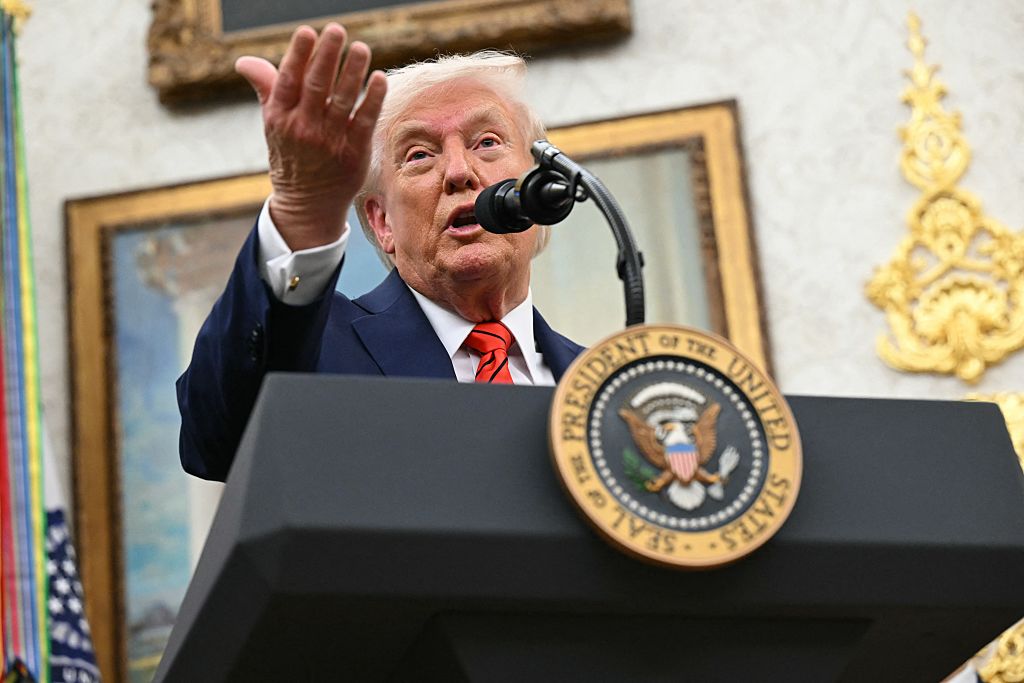Ever since roughly 2010, politics on both sides of the Atlantic has been dominated in large part by the ‘Great Awokening’, a sudden upsurge among graduate professionals of a kind of radical identitarian politics usually called ‘wokeness’. It has come to define most of the left while the right has reactively defined itself by its opposition. This radical politics appears to be detached from economics and material concerns (a point made forcefully by old-fashioned socialists in places like Jacobin magazine). However, the rise of cultural radicalism among both public and private sector managers has a material cause. That cause is elite overproduction.
‘Woke’ beliefs and politics are firstly a way of signifying that you are high-status, precisely because they are not shared by the majority
As described by theorists such as Peter Turchin, elite overproduction is when a society produces more people who are qualified for elite roles than there are actual available positions. Elite means roles and positions that have high status, not necessarily high income although they often have that as well. Examples of this include the surfeit of knights and warriors in eleventh-century Europe, too many lawyers and aspirant office-holders in eighteenth century France. So, you have a surplus of qualified people. This leads to competition and status anxiety among the qualified, as they compete with each other for positions and strive to maintain the status they have invested in getting.
Currently, we have far too many graduates for graduate level professional white-collar employment. Much of the employment of that kind that we do have is what David Graeber described as ‘bullshit jobs’. Other graduates make a precarious living in the middle-class form of gig work in the ‘creative economy’ of tech, IT, marketing and publishing or creative work. ‘Woke’ beliefs and politics are firstly a way of signifying that you are high-status, precisely because they are not shared by the majority. While competing with other equally qualified people for positions or advancement one way of gaining an advantage is by showing more commitment to the distinctive ideology of the elite class. As Turchin argues, elite overproduction usually leads to radical politics and political upheaval as the increasingly irate graduates, their expectations disappointed, turn on what they see as an establishment that has thwarted them.
All of this status anxiety is about to be turned up dramatically through the impact of AI. Research in the UK shows a 31.9% drop in white-collar entry level jobs since ChatGPT was rolled out. This process of job destruction is accelerating and will soon extend to established positions. We are looking at the mass elimination of professional, white-collar, middle-class employment. Any desk job that is routine and process driven will be replaced. That means the huge majority of lawyers, physicians, consultants, and accountants will be redundant along with most middle managers of all kinds and many roles in finance, creative industries, and media or publishing. This is not though the end of the world or of work – far from it. Because of high marginal costs of replacement most manual work will be safe. It is the professional graduate class, already being overproduced, that will be facing a jobs debacle.
As their roles are replaced, the politics of this threatened class is likely to become more explicitly anti-system
How will this work out in politics? The easy assumption is that this will intensify existing divisions. If the politics of ‘woke’ comes from the status competition and anxiety among the certified graduate class, this will become even more pronounced and intense. The threatened or redundant in that class in major metropolitan areas will turn even more to radical left politics of the kind we have seen over the last decade or more. On the other side, much of the populist right politics of MAGA drives from the deep resentment by the non-certified majority of what they see as the condescending and superior attitudes of the graduate professionals. An intensification of woke radicalism among the increasingly displaced graduate class will provoke an equally intense reaction among other groups.
As their roles are replaced, the politics of this threatened class is likely to become more explicitly anti-system. Crucially it will become more focused on economics and the structure of governance and the woke cultural politics will become less central. On the right there will be a similar evolution, with a more explicitly critical focus on the existing economic system. Both sides will move to a very similar kind of political economy, best described as neo-mercantilism. The people who are going to be seriously embattled are the current governing establishment and large institutions, including large firms and most universities and big NGOs. Up till now they have been able to co-opt the discontented professional graduate class and assuage their anxiety by playing up the cultural politics, but this will be ever less possible as it becomes obvious to all that the promise of high-status work of a certain type is vanishing.
What will continue to divide the left and right – even when both are explicitly critical of the big institutions and the status quo – is cosmopolitanism versus nationalism. These are questions about the nature of America as a political community, its place in the world and its relation to other major powers. In addition, a new secondary division will emerge on both the cosmopolitan and nationalist sides over technology. One side, on both left and right, will be Promethean, welcoming the new technology and excited about its possibilities. We can see this already in the work of people like Ezra Klein and Marc Dunkelman or on the right with Peter Thiel and Elon Musk. The other side will be deeply alarmed by the new technologies, particularly AI, seeing them as anti-human or even demonic. This divide between tech right and left versus anti-tech right and left became visible in the recent debate over state regulation of AI. This will produce four kinds of politics – cosmopolitan and Promethean, cosmopolitan and techno-sceptic, nationalist and Promethean, and nationalist and technophobic. How to respond to AI and other new technologies such as bioengineering will be central to this new division, while the old economic divides will fade away even more. All kinds of strange and unexpected new alliances will form, as we are already beginning to see.


























Leave a Reply